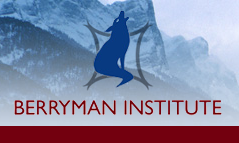Creative Commons License

This work is licensed under a Creative Commons Attribution 4.0 License.
Abstract
In many cases, urban environments create high-quality habitat for wildlife that may allow species to form commensal relationships with humans. Positive impacts of urban environments (e.g., high-quality nesting habitat) may enhance survival and/or increased fecundity. One species that has shown the ability to form commensal relationships with humans in urban environments is Canada geese (Branta canadensis). Canada goose populations have continued to rebound in Kansas, USA, and across the Great Plains, such that the estimated resident population in Wichita, Kansas, grew from 0 to >5,000 resident geese and the over-winter population increased from 1,600 in 1997 to >18,000 by 2003. Due to the increase in the urban Canada goose population, the number of complaints concerning geese has steadily increased through time. In response to complaints, the Kansas Department of Wildlife and Parks implemented an egg-oiling program in 2002, to assist in reducing the resident goose population. Previous studies have suggested effective goose population control programs must include reducing adult survival through efforts such as hunting and that egg-oiling programs alone may not be successful in reducing urban Canada geese populations. We examined the effects of a citizen-involved egg-oiling program from 2002 to 2020 to reduce the resident Canada goose population in Wichita, Kansas. We assumed every female Canada goose survived to age 20 and using survival estimates from the literature for different life stages, we developed program impact models to demonstrate effectiveness of the Kansas Special Canada Goose Permit program. We estimated a mean 128,676 (range: 89,749–167,663) potential adult, resident geese being removed from the population in the Wichita, Kansas, area from 2003 projected out to 2040. Our results suggested that egg-oiling programs conducted at large spatial and temporal scales and at low cost by citizens may limit population growth of urban geese.
Recommended Citation
Cope, Charles H.; Bidrowski, Tom F.; and Beckmann, Jon P.
(2023)
"Effectiveness of Citizen Engagement in a State Agency Egg-Oiling Program to Reduce Urban Canada Goose Populations and Conflicts,"
Human–Wildlife Interactions: Vol. 17:
Iss.
3, Article 10.
DOI: https://doi.org/10.26077/et9q-ds98
Available at:
https://digitalcommons.usu.edu/hwi/vol17/iss3/10
Included in
Ornithology Commons, Population Biology Commons, Research Methods in Life Sciences Commons, Terrestrial and Aquatic Ecology Commons




